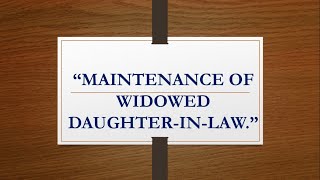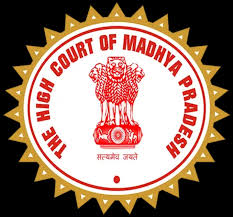G.N. Vaidya, J.@mdashThe Poona Contractor''s Co-operative Bank Ltd., has filed the above Appeal, against the Order, passed by the 4th Joint Civil Judge, Senior Division, Poona, on February 16, 1975, dismissing with costs, the Special Darkhast, filed on behalf of the Bank, for executing the Award dated June 13, 1963, by the Registrar''s nominee, against the Respondent No. 1, who was the debtor, and Respondent No. 2, who was the surety.
2. The Principal debtor Respondent No. 1, had not raised any objection to the jurisdiction of the Registrar''s nominee on the ground that there was no dispute. The judgment-debtor No. 2 surety, was absent when the award was passed ex-parte against him.
3. Nevertheless, having regard to the practice indicated to be followed by the Registrar, as laid down in L. R. Hingorani v. Pravinchandra Kantilal Shah 1965 Mh. L J 523 = 67 Bom. L R 306 , the learned Civil Judge found that the Registrar had not followed the said practice before referring the dispute in this case, between the Back and the Respondents, and, therefore, came to the conclusion that the Award was a nullity; and that in view of the decision of the Supreme Court, in
4. The decision is challenged in the above Appeal, filed by the Bank, on the ground that the following of the practice, laid down by this Court in the aforesaid Hingorani''s case did not affect the inherent jurisdiction of the Registrar''s Nominee, particularly as, no question was raised either by the Principal Debtor or by the Surety, the Judgment-Debtors 1 and 2, before the Registrar''s Nominee, or before the Registrar, before the Award was passed, about the practice that was followed by the Registrar, prior to the decision in Hingorani''s case, and also because, they had not challenged the Award by filing an appeal to the Co-operative Tribunal, under the Maharashtra Co-operative Societies Act, 1960, challenging the validity of the Award.
5. The contention must be upheld. The learned Civil Judge mis-construed and mis-applied the decision of the Supreme Court in Kiran Singh''s case, where, on the facts, it was clearly laid down, in the context of the provisions of the Suits Valuation Act, that DO question of over-valuation or undervaluation arose in that case. The law about the power of the executing Court, to go behind the decree, is with great respect, laid down succinctly, in
"A Court executing a decree cannot go behind the decree between the parties or their representatives; it must take the decree according to its tenor, and cannot entertain any objection that the decree was incorrect in law or on facts Until it is set aside by an. appropriate proceeding in appeal or revision, a decree even if it be erroneous, is still binding- between the parties.
When a decree which is a nullity for instance, where it is passed without bringing ''he legal representatives on the record of a person who was dead at the date of the decree, or against a ruling prince without a certificate, is sought to be executed an objection in that behalf may be raised in a proceeding for execution Again, when the decree is made by a-Court which has no inherent jurisdiction to make it, objection as to its validity may be raised in an execution proceeding if the objection appears on the face of the record; where the objection as to the jurisdiction of the Court to pass the decree does not appear on the-face of the record and requires examination of the questions raised and decided at the-trial or which could have been but have not been raised, the executing Court will have no jurisdiction to entertain an objection as to the validity of the decree even on the ground? of absence of jurisdiction.
See also, in this connection,
6. Turning to the facts of the case, as already stated above, I find that, no objection, on the ground that the dispute did not fall within the scope of section 91 of the Maharashtra Co-operative Societies Act, 1960, was raised by either of the judgment-debtors before the Registrar, or Registrar''s Nominee, who passed the award. The award was not challenged before the Cooperative Tribunal, to which appeal lay, u/s 149 of the Maharashtra Co-operative Societies Act 1960. In fact, the judgment-debtors had never challenged the validity of the award or even the propriety, till the present execution proceedings were filed against them. They could not, therefore, challenge the validity of the award before the executing Court, on the ground that, the practice, indicated by this Court in Hingorani''s case, subsequent to the passing of the award in this case, was not followed by the Registrar.
7. There was nothing in section 91 itself, which required the Registrar to follow the practice. It was as a result of the subsequent interpretation by this Court, where, an objection was raised that the dispute was not within the scope of section 91, that the practice was indicated to be followed by the Registrar This Court has not laid down that if the practice was not followed, the judgment debtors could challenge the award which was passed, without following the practice, as in (be present case.
8. The practice and procedure indicated was in the context of objections raised before the Registrar or before the Rtgistrar''s Nominee with regard to the dispute not falling within the scope of section 96. The practice was not indicated even where such dispute was not at all raised as in the present case. The learned Judge was, therefore, wrong in applying Hingorani''s case to (he facts of the present case, and in holding that the award was null and void.
9. Moreover, the practice which is indicated by this Court in Hingorani''s case was only a matter of procedure to be followed by the Registrar, to decide whether a dispute existed u/s 91, where an objection was raised by the parties with regard to the nature of the dispute not falling within the scope of section 91. The practice did not affect the inherent jurisdiction conferred u/s 91 of the Maharashtra Co-operative Societies Act, 1960, to refer She dispute for determination by the Registrar''s Nominee.
10. In other words, the matter was not one of want of jurisdiction, but merely a matter of practice, if at all, in the procedure to be followed by the Registrar, which did not affect the inherent jurisdiction of the Registrar or his Nominee, to decide the matter. Section 98 of the Maharashtra Co-operative Societies Act, 1960 lays down that, on a certificate signed by the Registrar, the award is to be deemed to be the decree of a civil Court, and shall be executed an the same manner as a decree of such Court. In the circumstances, the executing Court had no jurisdiction to hold that the award was invalid because the Registrar had not followed the correct practice, as laid down subsequently by this Court, in Hingorani''s case.
11. Furthermore, even assuming that the executing Court can go into such question, it was necessary for the Court to consider whether there was any substance in the objection raised by the judgment-debtors. The executing Court failed to note that, in the present case, the dispute fell within the scope of section 91, inasmuch as both the judgment-debtors were members of the Bank, and the dispute related to the claim of the Bank for recovering the amount borrowed by the judgment-debtor No. 1 for which the judgment-debtor No 2 was a surety. The dispute clearly fell within the scope of section 91, and the executing Court acted illegally in holding that the award was without jurisdiction, merely because the Registrar did not decide, following the practice laid down by this Court, that there was a dispute.
12. In this connection, it is also necessary to refer to number of decisions of Courts, relating to execution of awards under the Co-operative Societies Act. Thus, in Ahmad Yar v. Co-operative Credit Society A I R 1926 Lah. 547 , it was laid down that, a Court executing an award under the Co operative Societies Act, has no power to do anything except to execute the award as if it were a decree of the executing Court. Again, in
"Where an award made under the Co-operative Societies Act is alleged to have been made without jurisdiction and not according to the terms of the Act, it is open to the person aggrieved to bring a suit to that effect but such objections cannot be taken in the execution proceedings started in pursuance of the award, the objector''s remedy being an appeal to the Registrar."
13. In Mathura Prasad and another v. Shoobalakram I L R 1917 (40) All. 89, a society formed under the Co-operative Societies Act, 1912, went into liquidation. The liquidator, having taken mortgages from the various persons who were members of the society and had received advances, proceeded to make an order, purporting to be passed u/s 42(b) of the Act determining that each of the debtors should be jointly and severally liable for the full amount of the several debts This order was then taken to the civil Court having local jurisdiction to be enforced u/s 42(5)(a). It was held that the liquidator was probably wrong in passing the order which he did, but that, the order being one within section 42 of the Act, the Civil Court had no option but to enforce it and that no appeal by to the District Judge nor a second appeal to the High Court.
14. Similarly, in Firm Gopalji v. Indore Premier Co-operative Bank Ltd. A I R 1957 M B 56 the Division Bench of that Court held that the executing Court cannot refuse to execute a decree unless it is apparent on the face of the decree that it is one passed without Jurisdiction, and further observed :�
"In fact any Court executing the award under the Co-operative Societies Act has no power to do anything except to execute the award as if it were a decree of the Coun executing it."
following the aforesaid Lahore decision, in Ahmed Yar''s case.
15. In the result, it must be held that the 4th Joint Civil Judge, Senior Division, Poona, erred in law, in refusing to execute the award, on the ground that the Registrar had not followed the practice, which was indicated by this Court, and further, in dismissing the Darkhast with costs.
16. The judgment and order passed by the learned Civil Judge, on. February 16, 1971, are, therefore, set aside and Special Darkhast No. 5! of 1966, is restored to the file of the Civil Judge, Senior Division, Poona, for being heard and disposed of in accordance with law, and in the light of the above judgment.
17. The appeal is allowed with costs. The costs in the Darkhast will be costs in the cause.

